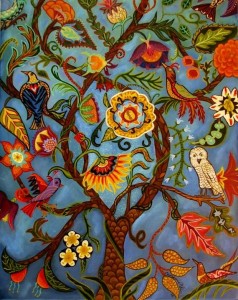Dear Integral Meditators,
Is meditation something that you sit down and do each day as a formal practice, or is it more fundamental, a whole way of approaching life? The article below explores that latter option.
Yours in the spirit of meditation,
Toby
Upcoming Courses at Integral Meditation Asia :
Special offer for 1:1 Coaching For January at Integral Meditation Asia (Via skype or face to face)
Sunday 1st February – Mindful Self-Leadership: Take Control of Your Life Direction and Wellbeing Through Awareness, Curiosity, Courage and Care
Tuesday 10th February, 7.30-9.30pm – An Evening of Mindful Resilience – Sustaining effectiveness, happiness and clarity under pressure through meditation and mindfulness
Saturday 14th February, 2.30-5.30pm – Mindfulness and Meditation For Creating a Mind of Ease, Relaxed Concentration and Positive Intention
 Meditation as a Way of LifeThe commitment to contemplate life deeply
Meditation as a Way of LifeThe commitment to contemplate life deeplyOne way of defining meditation is simply a commitment to contemplating and investigating life deeply. This definition is useful as it takes us away from the idea of meditation as something that you do as a formal practice for 10minutes, 30 minutes, an hour a day, and indicates that it is really a fundamental stance toward life; to be a true meditator is to be committed to looking at your work, your relationships, your sex life (or lack of it), your philosophy and so on… deeply. It means to be dis-satisfied with superficial surface experiences and hungry for real experience, to make your life your own and not just a pastiche of what somebody else told you life should be.The temptation to stay on the surface
We are without a shadow of a doubt the most educated set of human generations that has ever lived. We have the potential to look deeply into our life and find patterns of meaning and consequence, but do we? Despite having the capacity to look deeply, many of us avoid it. We content ourselves with the superficial, with the easy. We pay attention to that which society guides our attention to, we define ourselves according to the prevailing trends and beliefs, we avoid the voice within us that calls us to look beyond the surface and the comfortable because it makes us uncomfortable, makes us feel vulnerable, and also makes us feel genuinely powerful (which is perhaps the most scary of all).
To be a meditator means to be committed to go beyond the surface patterns of our life each day, and contemplate the depths.
The courage to go deeper
Being a meditator is an act of courage, curiosity and care; commitment each day to connect and heal the hidden parts of ourselves that are damaged, the curiosity and interest to develop the powers of our body-mind-spirit to the next level, and to care about our lives and the lives of others enough to go beyond indifference, numbness and apathy, which each day tempt us to fall back into a state of passive unconsciousness.
It is a 24hour practice!
From this we can see that to be a meditator in the true and broader sense of the word is quite an heroic activity. It is demanding, it is inconvenient, it is sometimes tiring, it causes us to make difficult choices, it may mean we have to spend time alone.
What is the reward of this all? The reward of committing to contemplate life deeply? The reward of being a meditator? It is that we get to feel truly alive in way that cannot be taken away from us.
Related article: Life-fullness
© Toby Ouvry 2014, you are welcome to use or share this article, but please cite Toby as the source and include reference to his website www.tobyouvry.com









